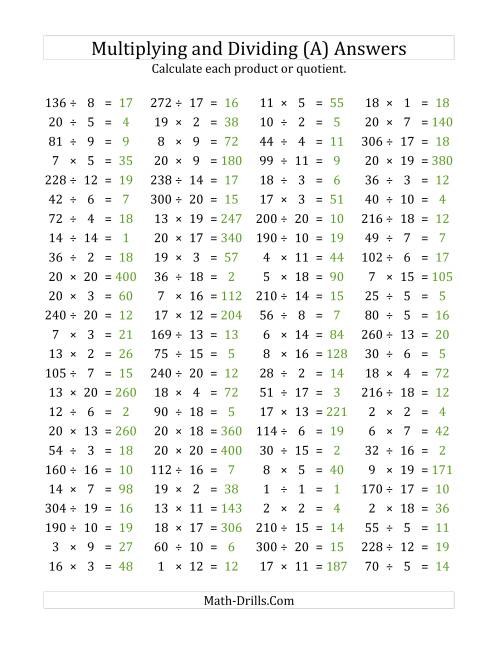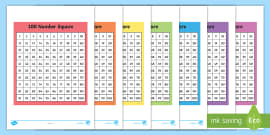
#How do you do division 10division by 400 hunderd how to
Here is another more example of how to use the distributive property to simplify an algebraic expression: This works with monomials and when multiplying two binomials:ģ ( 5 a ) + 3 ( 12 ) + ( - 1 ) ( a + 8 ) = ? In algebra, the Distributive Property is used to help you simplify algebraic expressions, combine like terms, and find the value of variables. You can use the characteristics of the Distributive Property to “break apart” something that is too hard to do as mental math, too:Įxpand the multiplier and distribute the multiplicand to each place value:ĩ ( 1,000 ) + 9 ( 800 ) + 9 ( 40 ) + 9 ( 7 ) = ?Īssociate (group) addends for easier mental addition:ġ6,200 + 423 = 16,623 Distributive Property Algebra The Distributive Property allows you to distribute the multiplicands or factors outside the parentheses (in this case, 2 and - 6), to each term inside the parentheses:Ģ ( 3 ) + 2 ( 4 ) + 2 ( 5 ) - 6 ( 7 ) - 6 ( 8 ) = ? This is true whether you add or subtract terms: In basic operations, the Distributive Property applies to multiplication of the multiplicand to all terms inside parentheses.

The Math Club treasurer should reimburse you $ 71.10 for the lunches. Using mental math, how much should you be reimbursed for the lunches? You notice that $ 7.90 is only $ 0.10 away from $ 8, so you use the Distributive Property: You buy nine boxed lunches for the members of Math Club at $ 7.90 each. Too easy? Let’s try a real-life word problem using money amounts: These example problems that may help you to understand the power of the Distributive Property: Instead of trying to solve 125 5, you can use the distributive law of division to simplify the numerator and turn this one problem into three smaller, easier division problems that you can solve much easier. The distributive law of division can be used to simplify division problems by breaking apart or distributing the numerator into smaller amounts to make the division problems easier to solve. The distributive property does not apply to division in the same since as it does with multiplication, but the idea of distributing or “breaking apart” can be used in division. Here are examples of the distributive property of multiplication at work: Distributive Property of Addition and Subtraction Distributive Property Over Addition The distributive property is the same as the distributive property of multiplication, and it can be used over addition or subtraction. You can use distributive property to turn one complex multiplication equation into two simpler multiplication problems, then add or subtract the two answers as required. The Distributive Property states that, for real numbers a, b, and c, two conditions are always true:

Distributive Property Stepsĭistributive property connects three basic mathematic operations in two pairings: multiplication and addition and multiplication and subtraction. It is used to simplify and solve multiplication equations by distributing the multiplier to each number in the parentheses and then adding those products together to get your answer.

Distributive Property of Multiplicationĭistributive property is one of the most used properties in mathematics.


 0 kommentar(er)
0 kommentar(er)
